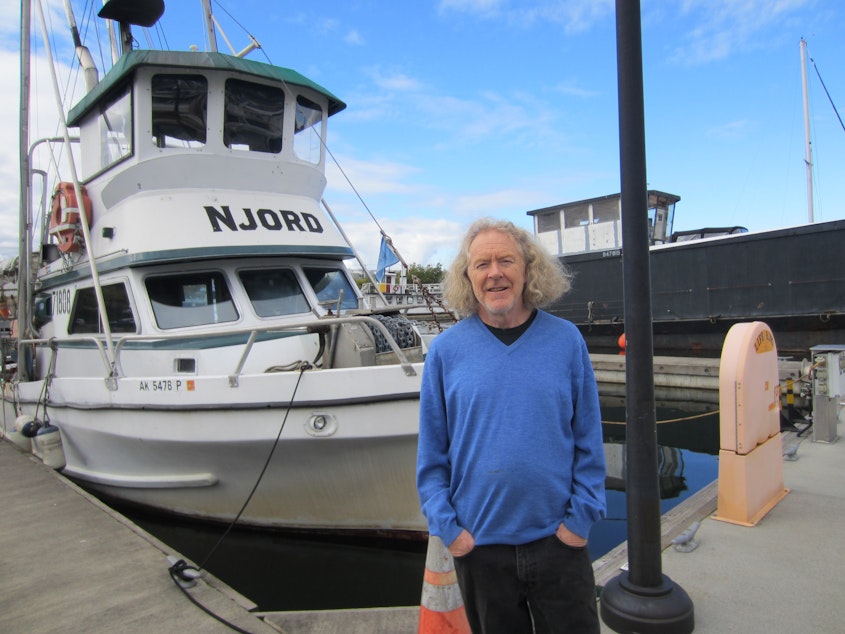The Port Of Seattle: Why You Should Care

Seattle's international reputation has been burnished by the city's thriving technology industries, by the hip independent music scene, and even by the ubiquity of Starbucks. But 100 years before latte vendors squatted on every city corner, Seattle was a thriving maritime hub. It still is.
Fisherman's Terminal is tucked into an inlet of Salmon Bay, on the north shore of Seattle's Magnolia neighborhood. For more than a century, the Terminal has been home to the majority of the North Pacific fishing fleet: 700 trollers, gill netters, crab boats and long liners moor at the Terminal. By some estimates, the fishing boats generate 5,000 maritime jobs.
The Port of Seattle oversees Fisherman's Terminal. It's just one of the Port's many tentacles. Sea Tac airport, Harbor Island, the downtown Seattle cruise ship terminals: all managed by the Port of Seattle.
Independent fisherman Pete Knutson said those various responsibilities divert the Port's attention from what he calls the "mom and pop" fishing industry. Knutson has long been a vocal critic of the Port; he faults their decision to allow pleasure boats to moor at Fisherman's Terminal and he criticizes their lack of investment in Terminal facilities that foster the livelihoods of small-scale fishermen. He does have history on his side.
The Port of Seattle was established in 1911 to coordinate management of the city's seaport facilities. It manages those holdings for the public, with an infusion of tax revenues. The Port's business is overseen by an elected five-member commission. More than 111,000 people were employed in Port-related jobs in 2007; jobs that paid an estimated $3.8 billion.
Sponsored
But Seattle Times reporter Emily Heffter said right now, the Port-owned facilities are struggling. Other West Coast facilities are competing for the same container-ship business. Heffter said Port officials worry about the traffic impact a new sports arena could have on the business that currently exists in the SoDo area.
Four of the five Port Commission seats are up for grabs this autumn. Heffter said all of the candidates have stressed they will focus on improving relations with both King County and the City of Seattle in order to have more influence on zoning changes that might affect that neighborhood.
The Port of Seattle's future is about more than any particular business or facility the Port oversees. Both Heffter and Knutson believe the Port is the de facto keeper of Seattle's blue-collar industrial image. So decisions that favor recreational over industrial uses, gentrification over "traditional" Seattle, are really decisions about what Seattle will look like in 50 or 100 years.
When it comes to SoDo, "Do we want a strong waterfront, or an entertainment center?" Heffter asked. Do we want a thriving highway system for trucking goods from the Port, or are we more concerned about sports arenas and residential waterfront development, she continued.
For Knutson, the question is more personal. He said Port officials don't pay much attention to the local fishing industry they're mandated by the public to protect. And that's something he and other fishermen at the Terminal resent. "We're cranky!" he said, because they feel their interests are overlooked in favor of big industry. "The public created Fisherman's Terminal as a snug harbor" for the fishermen, he said. And he believes it's a task the Port has been shirking.
Sponsored
Whoever voters choose for the four Port Commission jobs, Knutson hopes they'll be open to working with everyone from the airlines who negotiate to land at Sea-Tac, to the owners of the 40-foot fishing boats moored at Fisherman's Terminal.
These are races that some citizens overlook when they're filling out their ballots. Knutson wants people to pay more attention to races that he believes could ultimately change the face of Seattle.
Audio will be posted after the story airs.

